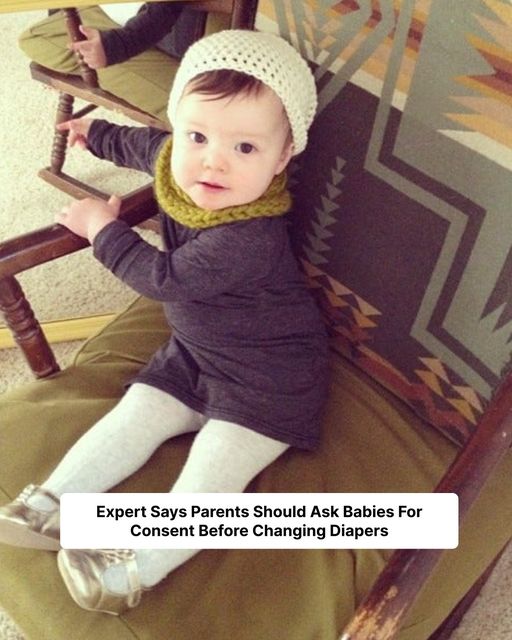
Understanding Consent: A Fundamental Right
Consent is the agreement to participate in an activity. It’s a vital component of healthy relationships, and its principles extend to all individuals, regardless of age. While many may assume that infants cannot give or understand consent, proponents argue that instilling the idea of consent early on can foster respect for personal boundaries.

The Importance of Consent in Parenting
- Bodily Autonomy: Teaching children about their bodies and the importance of consent can empower them as they grow.
- Building Trust: Engaging in dialogue, even with infants, can create a trusting parent-child relationship.
- Modeling Respect: Parents who demonstrate respect for their child’s comfort can instill values of respect and empathy.
The Diaper Changing Debate: What Experts Say
Experts in child development and psychology are weighing in on this conversation, with varying opinions:
- Proponents argue that asking for consent, even in a simplified form (like “Is it okay if I change your diaper?”), introduces the concept of bodily autonomy from a young age.
- Skeptics suggest that infants are incapable of providing meaningful consent and that the practicalities of diaper changes should take precedence. They worry that this approach might complicate parenting during stressful situations.
Practical Tips for Implementing Consent in Diaper Changes
If you’re curious about how to incorporate the idea of consent into diaper changing, consider these practical steps:
- Use Simple Language: Speak to your baby in a calm and reassuring tone. Phrases like “Let’s change your diaper now” can signal the transition.
- Observe Reactions: Pay attention to your baby’s body language. Are they squirming or appearing uncomfortable? This can be an indication that they might not be ready.
- Offer Choices: For older infants, you might ask if they’d prefer a specific changing mat or toy during the process. This gives them a sense of involvement.
- Make It a Game: Use playful language and gestures to engage your baby. Turning diaper changing into a fun activity can foster a positive experience.
The Benefits of This Approach
Engaging infants in the process of diaper changing can have several benefits:
- Promotes Comfort: When babies are treated with respect during diaper changes, they may feel more at ease.
- Strengthens Bonding: This interaction can foster a deeper connection between parent and child, laying the foundation for open communication.
- Encourages Empathy: As children grow, they may develop a better understanding of personal boundaries and the importance of consent.
Potential Challenges and Considerations
While the concept of seeking consent from infants is intriguing, there are challenges to consider:
- Practicality: In situations where a quick change is necessary, stopping to ask for consent may not always be feasible.
- Developmental Stages: Understanding of consent evolves as children grow. While this approach may work for infants, it may need to adapt as they become toddlers and beyond.
Conclusion: A New Frontier in Parenting?
As society continues to evolve, so do our parenting practices. The idea of asking for consent before changing diapers may seem unconventional, but it opens up a valuable conversation about respect, autonomy, and trust in parenting. While there are practical considerations, embracing the principles of consent—even in small ways—can lay the groundwork for a more respectful and empathetic relationship between parents and their children.
This discussion serves as a reminder that every interaction with our children is an opportunity to teach them about their bodies, respect, and the importance of consent. Whether or not this approach is adopted widely, it’s clear that the conversation about consent and parenting is far from over.





